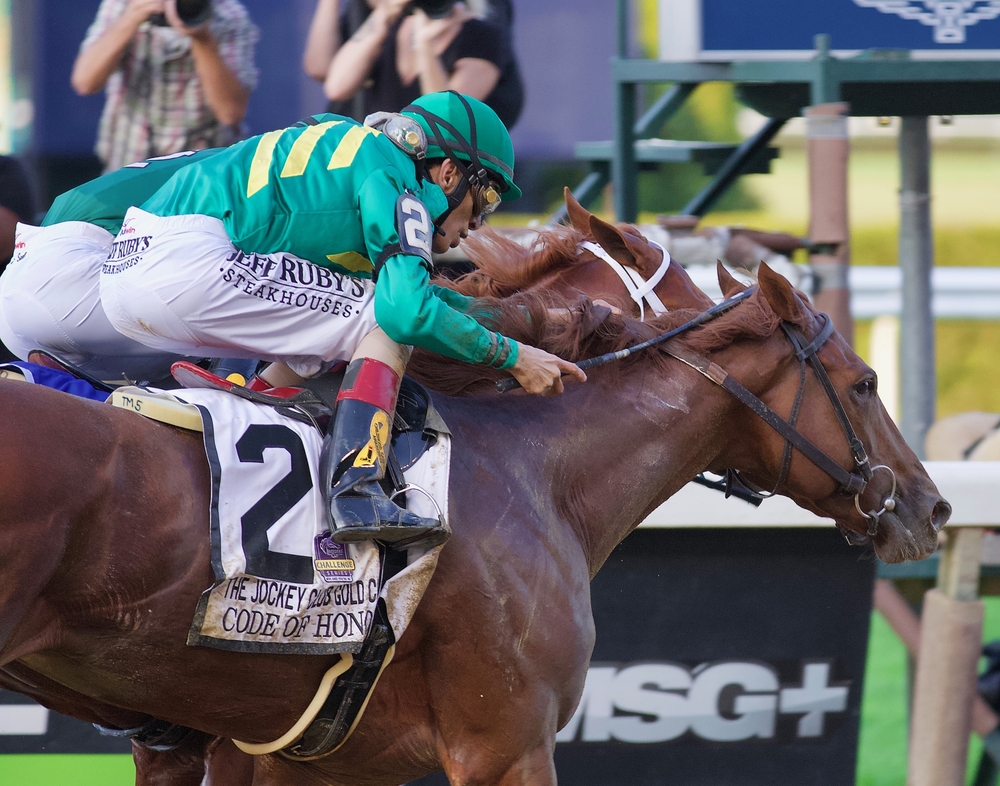Calculating potential winnings based on the odds is an essential aspect of sports betting. Whether you’re a seasoned bettor or just getting started, understanding the odds and how to calculate your potential winnings is crucial to making informed decisions and maximizing your profits.
There are a variety of tools and resources available to help you calculate your potential winnings, including online bet calculators and odds calculators. These tools allow you to enter your stake, bet type, odds, and other relevant information to quickly and accurately calculate your potential winnings.
However, it’s important to note that calculating potential winnings based on the odds is not an exact science. There are many factors that can impact the outcome of a bet, including injuries, weather conditions, and other unforeseen circumstances. As such, it’s important to use your own judgment and do your own research when placing bets, rather than relying solely on the odds or other external factors.
Understanding Betting Odds
Betting odds are used to represent the probability of an event happening and the potential winnings that can be obtained from a bet. There are three common types of odds used in betting: decimal odds, fractional odds, and American odds.
Decimal Odds
Decimal odds are commonly used in Europe, Canada, and Australia. They represent the total payout a bettor would receive for a winning bet, including the original stake. For example, if the decimal odds are 2.50 and the bettor places a $10 bet, the total payout would be $25 ($10 x 2.50).
Fractional Odds
Fractional odds are commonly used in the UK and Ireland. They represent the potential winnings a bettor could receive for a winning bet, excluding the original stake. For example, if the fractional odds are 5/1 and the bettor places a $10 bet, the potential winnings would be $50 ($10 x 5).
American Odds
American odds are commonly used in the United States. They represent the amount a bettor would need to wager to win $100 or the amount a bettor would win for a $100 bet. For example, if the American odds are +200, the bettor would need to wager $100 to win $200 or would win $100 for a $50 bet. Negative American odds, such as -150, indicate the amount a bettor would need to wager to win $100.
Calculating Potential Winnings
To calculate potential winnings, the odds must be converted to a percentage. This can be done using the following formula:
Probability (%) = B / (A+B)
Where A is the amount of the bet and B is the potential winnings. Once the probability is calculated, it can be used to determine the potential winnings for any amount of bet.
For example, if the decimal odds are 2.50, the equivalent percentage would be 40% (1 / 2.50). If the bettor placed a $20 bet, the potential winnings would be $50 ($20 x 2.50), resulting in a profit of $30.
It is important to understand the different types of odds and how to calculate potential winnings in order to make informed betting decisions.
Types of Bets
When it comes to sports betting, there are many types of bets that you can place. Understanding the different types of bets is essential to calculate your potential winnings based on the odds. Here are some of the most popular types of bets:
Single Bet
A single bet, also known as a straight bet, is the simplest type of bet you can place. It involves betting on a single event or outcome. If your bet wins, you get paid out based on the odds of that outcome.
Multiple Bet
A multiple bet, also known as a combo bet, involves betting on two or more events or outcomes. To win a multiple bet, all of your selections must be correct. The potential winnings for a multiple bet are calculated by multiplying the odds of each selection together.
Accumulator Bet
An accumulator bet, also known as an acca, is a type of multiple bet that involves betting on more than one event or outcome. However, unlike a multiple bet, the winnings from each selection are rolled over to the next selection. This means that the potential payouts for an accumulator bet can be much higher than for a multiple bet.
Full Cover Bet
A full cover bet is a type of bet that covers all possible combinations of a set of selections. There are many different types of full cover bets, including the Yankee, Lucky 15, Lucky 31, and Heinz. Each type of full cover bet covers a different number of selections and has its own unique payout structure.
Sports Bets
Sports bets can be placed on a wide range of different sports and events. Some of the most popular sports bets include football, horse racing, tennis, basketball, and cricket. Each sport has its own unique set of betting options and odds.
Individual Bets
Individual bets are bets that are placed on a single event or outcome. These can include single bets, multiple bets, accumulator bets, and full cover bets. The potential winnings for individual bets are calculated based on the odds of the selected outcome.
Calculating Potential Winnings
Calculating potential winnings is an essential aspect of betting. It helps you to know the amount of money you stand to win if your bet is successful. The calculation process is relatively simple, and you can use a bet calculator to make things easier. Here’s how to calculate your potential winnings:
- Determine the odds: The odds represent the probability of an event occurring. They can be expressed in decimal or fractional format. For instance, if the odds are 3.00, it means that you stand to win three times your stake.
- Determine the stake: The stake is the amount of money you are willing to risk on the bet.
- Multiply the odds by the stake: To calculate your potential winnings, you need to multiply the odds by the stake. For example, if you bet $10 at odds of 3.00, your potential winnings would be $30 (3.00 x $10).
- Add the stake to the potential winnings: To get your total returns, you need to add the stake to the potential winnings. In the above example, your total returns would be $40 ($30 + $10).
It’s worth noting that different bet types have different payout structures. For example, an each-way bet involves two bets: one for the win and one for the place. In this case, you need to calculate the potential winnings for each bet separately.
In conclusion, calculating potential winnings is a straightforward process that requires basic math skills. You can use a bet calculator to make things easier, especially if you’re dealing with complex bets or multiple selections. By understanding how to calculate your potential winnings, you can make informed betting decisions and minimize your risk.
Understanding Bookmakers and Betting Exchanges
When placing a bet, it is important to understand the difference between bookmakers and betting exchanges.
Bookmakers
Bookmakers are companies that offer odds on different events or outcomes. They make a profit by taking a commission on the bets placed. The amount of commission varies from bookmaker to bookmaker.
Some popular bookmakers include Paddy Power, Betfair, and William Hill. When placing a bet with a bookmaker, you are betting against the bookmaker. If your bet wins, the bookmaker pays out your winnings. If your bet loses, the bookmaker keeps your stake.
Betting Exchanges
Betting exchanges, on the other hand, are platforms that allow individuals to bet against each other. In other words, you are betting against other people, not against the bookmaker.
The most popular betting exchange is Betfair. When placing a bet on a betting exchange, you have two options: backing and laying.
- Backing: This is the same as placing a bet with a bookmaker. You are betting that a particular outcome will happen. If it does, you win your bet. If it doesn’t, you lose your stake.
- Laying: This is the opposite of backing. You are betting that a particular outcome will not happen. If it doesn’t, you win your bet. If it does, you lose your stake.
Betting exchanges charge a commission on the bets placed. The commission is usually lower than the commission charged by bookmakers.
In summary, bookmakers and betting exchanges offer different ways to place bets. Bookmakers offer odds on different events and make a profit by taking a commission on the bets placed. Betting exchanges allow individuals to bet against each other and charge a lower commission than bookmakers.
Influence of Stake on Winnings
The amount of money you bet on a sports game is known as the stake. The stake plays a crucial role in determining the potential payout or winnings from a bet. The higher the stake, the higher the potential payout or winnings.
When calculating potential winnings, the stake is multiplied by the odds to determine the potential profit. For example, if you bet $100 on a team with odds of +150, the potential profit would be $150. The total payout would be $250, which includes the stake and the profit.
It is important to note that the stake also affects the risk involved in a bet. A higher stake means a higher risk, as you are risking more money. It is important to only bet what you can afford to lose and to never chase losses.
In summary, the stake is a crucial factor in determining the potential payout or winnings from a sports bet. It is important to consider the risk involved when deciding on a stake, and to only bet what you can afford to lose.
Different Betting Formats
When it comes to betting, there are different formats for odds that you can encounter. Understanding the different formats is important in calculating your potential winnings. Here are some of the most common formats:
Decimal Odds
Decimal odds are the most common format used in Europe, Australia, and Canada. They are expressed in decimal format and represent the total payout, including the original stake. To calculate your winnings, simply multiply your stake by the decimal odds.
Fractional Odds
Fractional odds are commonly used in the UK and Ireland. They are expressed in fractions and represent the profit you will make on a bet. For example, if the odds are 5/1, you will make a profit of £5 for every £1 you bet. To calculate your potential winnings, simply multiply your stake by the fraction.
Moneyline Odds
Moneyline odds are commonly used in the US for sports betting. They are expressed as a positive or negative number and represent the amount you need to bet to win £100 or the amount you will win if you bet £100. A positive number means the team or player is the underdog, while a negative number means they are the favorite.
Place Terms
Place terms are used in horse racing and refer to the number of places that will pay out on a bet. For example, if the place terms are 1/4 odds for the first 3 places, it means you will get a payout if your horse finishes in the top 3, and the payout will be 1/4 of the odds.
Race and Player Prop
Race and player prop bets are a type of bet where you bet on specific outcomes within a race or game. For example, you can bet on the winner of a race, the first player to score in a game, or the total number of points scored in a game. The odds for these types of bets are usually expressed in decimal or fractional format.
Understanding the different betting formats is crucial in calculating your potential winnings. Make sure you know which format is being used before placing your bet.
Betting on Different Sports
When it comes to sports betting, there are many different sports you can bet on. Some of the most popular sports to bet on include football, basketball, baseball, and horse racing. Each sport has its own unique set of rules, odds, and betting options.
For example, if you are betting on an NBA game, you can place a variety of bets, including point spread bets, moneyline bets, and over/under bets. The point spread bet is the most popular NBA bet, and it involves betting on the point spread of the game. The moneyline bet is a simple bet on which team will win the game, while the over/under bet involves betting on the total number of points scored in the game.
When it comes to horse racing, there are even more betting options available. You can place a win bet, which is a bet on which horse will win the race, or an each-way bet, which is a bet on a horse to either win or place in the race. There are also exotic bets, such as exacta bets, trifecta bets, and superfecta bets, which involve betting on the order of finish for multiple horses.
No matter which sport you are betting on, it is important to understand the odds and how they work. The odds represent the probability of a particular outcome occurring, and they are used to calculate potential winnings. For example, if the odds of a particular team winning a game are 2/1, this means that for every $1 you bet, you will win $2 if the team wins.
In addition to understanding the odds, it is also important to do your research and make informed bets. Look at the statistics, consider the team or player’s recent performance, and take into account any other relevant factors, such as injuries or weather conditions.
Overall, sports betting can be a fun and exciting way to add some extra excitement to your favorite sports. Just remember to always bet responsibly and within your means.
Understanding Betting Bonuses and Promotions
When it comes to sports betting, bonuses and promotions are a popular way for bookmakers to attract new customers and retain existing ones. These offers can come in many different forms, such as free bets, deposit bonuses, and enhanced odds.
One common type of promotion is the free bet. This is where the bookmaker offers a certain amount of money that can be used to place a bet without risking any of the customer’s own funds. It is important to read the terms and conditions of these offers carefully, as there may be restrictions on the types of bets that can be placed or the odds that can be used.
Another type of promotion is the deposit bonus. This is where the bookmaker offers to match a certain percentage of the customer’s deposit, up to a certain amount. Again, it is important to read the terms and conditions of these offers carefully, as there may be restrictions on how the bonus funds can be used or withdrawn.
It is also important to be aware of any wagering requirements that may be attached to bonuses and promotions. These are conditions that must be met before any bonus funds can be withdrawn. For example, a bookmaker may require the customer to place a certain number of bets or to wager a certain amount of money before the bonus funds can be withdrawn.
Overall, bonuses and promotions can be a great way to enhance the sports betting experience. However, it is important to read the terms and conditions carefully and to be aware of any restrictions or wagering requirements that may apply.
Making Informed Betting Decisions
When it comes to sports betting, making informed decisions is crucial to increasing your chances of success. This means taking into account factors such as probability, odds, and the performance history of the teams or players involved.
To start, it’s important to understand the concept of probability and how it relates to betting. Probability is a measure of the likelihood of an event occurring, expressed as a number between 0 and 1. In sports betting, probability is often used to determine the odds of a particular outcome.
By analyzing the probability of different outcomes, you can make more informed decisions about which wagers to place. For example, if the underdog has a higher probability of winning than the odds suggest, it may be worth placing a bet on them.
Another important factor to consider is the combination of bets you make. By combining multiple bets into one, you can increase your potential winnings, but also increase your risk. It’s important to carefully consider the potential outcomes of each individual bet before combining them into a larger wager.
When looking for a website to place your bets, it’s important to choose a reputable and trustworthy platform. Look for sites that are licensed and regulated by a reputable authority, and that have a history of fair play and prompt payouts.
Overall, making informed betting decisions requires a combination of knowledge, research, and careful analysis. By taking the time to consider all relevant factors, you can increase your chances of success and maximize your potential winnings.
Frequently Asked Questions
What is the formula to calculate winnings from odds?
To calculate your potential winnings from odds, you can use the following formula:
Winnings = (Stake x Odds) – Stake
How do you calculate win probability on a bet?
To calculate the win probability on a bet, you can use the following formula:
Win Probability = (1 / Odds) x 100
How do you convert odds to probability?
To convert odds to probability, you can use the following formula:
Probability = (1 / Odds) x 100
How do you determine winning team by odds?
To determine the winning team by odds, you need to compare the odds of each team. The team with the lower odds is considered the favorite, while the team with the higher odds is considered the underdog.
What do odds of mean?
Odds of mean that for every unit of currency you stake, you will receive units of currency back if your bet is successful.
What is a bet calculator?
A bet calculator allows you to simulate and calculate your potential earnings depending on the odds, the stake, and the type of bet you make. Bet calculators will typically have all bet types and odd formats are available.





